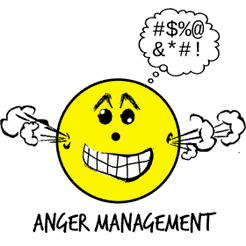
Anger is a powerful emotion that when unmanaged can have detrimental effects on our overall health and well-being. From the physical toll it takes on our bodies to the strain it puts on relationships, uncontrolled anger can significantly impact various aspects of our lives. However, by learning effective anger management techniques, we can regain control and experience positive changes in our health and overall quality of life.
The Impact of Unmanaged Anger on Health:
- Cardiovascular Health: Intense anger episodes can lead to increased heart rate, elevated blood pressure, and heightened stress responses. Prolonged exposure to such physiological changes can contribute to the development of cardiovascular issues, including heart disease and hypertension.
- Weakened Immune System: Chronic anger and unresolved conflicts can weaken our immune system, making us more susceptible to illnesses and infections. It can also hinder our body’s natural healing processes, resulting in slower recovery times.
- Mental Health Concerns: Uncontrolled anger is often linked to mental health conditions such as anxiety and depression. Persistent anger can exacerbate these conditions and create a cycle of negative emotions and maladaptive coping mechanisms.
- Relationship Strain: Frequent outbursts of anger can strain personal relationships, causing heightened stress and social isolation. Unresolved conflicts and poor communication resulting from anger can lead to strained relationships and decreased social support.
- Sleep Disruptions: Anger and unresolved emotional turmoil can disrupt sleep patterns, leading to difficulties falling asleep, staying asleep, and experiencing restful sleep. Sleep disruptions can further contribute to mood disturbances and compromise overall health.
Effective Anger Management Strategies:
- Self-awareness: Recognize the signs of anger, including physical sensations, thoughts, and behavioral patterns, to intervene before it escalates.
- Relaxation Techniques: Practice deep breathing exercises, meditation, or engaging in calming activities to reduce anger and promote emotional well-being.
- Communication Skills: Learn effective communication techniques, such as active listening and assertive expression, to express anger constructively and resolve conflicts.
- Stress Management: Incorporate stress-reducing activities into your daily routine, such as exercise, hobbies, and relaxation practices, to minimize anger triggers and promote emotional resilience.
- Seek Support: Consider seeking guidance from a therapist or joining anger management support groups to learn valuable coping strategies and gain insights from others facing similar challenges.
Managing anger is essential for our overall health and well-being. By implementing effective anger management strategies, we can reduce the negative impact of anger on our physical and mental health, improve our relationships, and experience a greater sense of inner peace and emotional balance. Remember, anger is a normal emotion, but it is how we choose to manage and express it that makes all the difference.